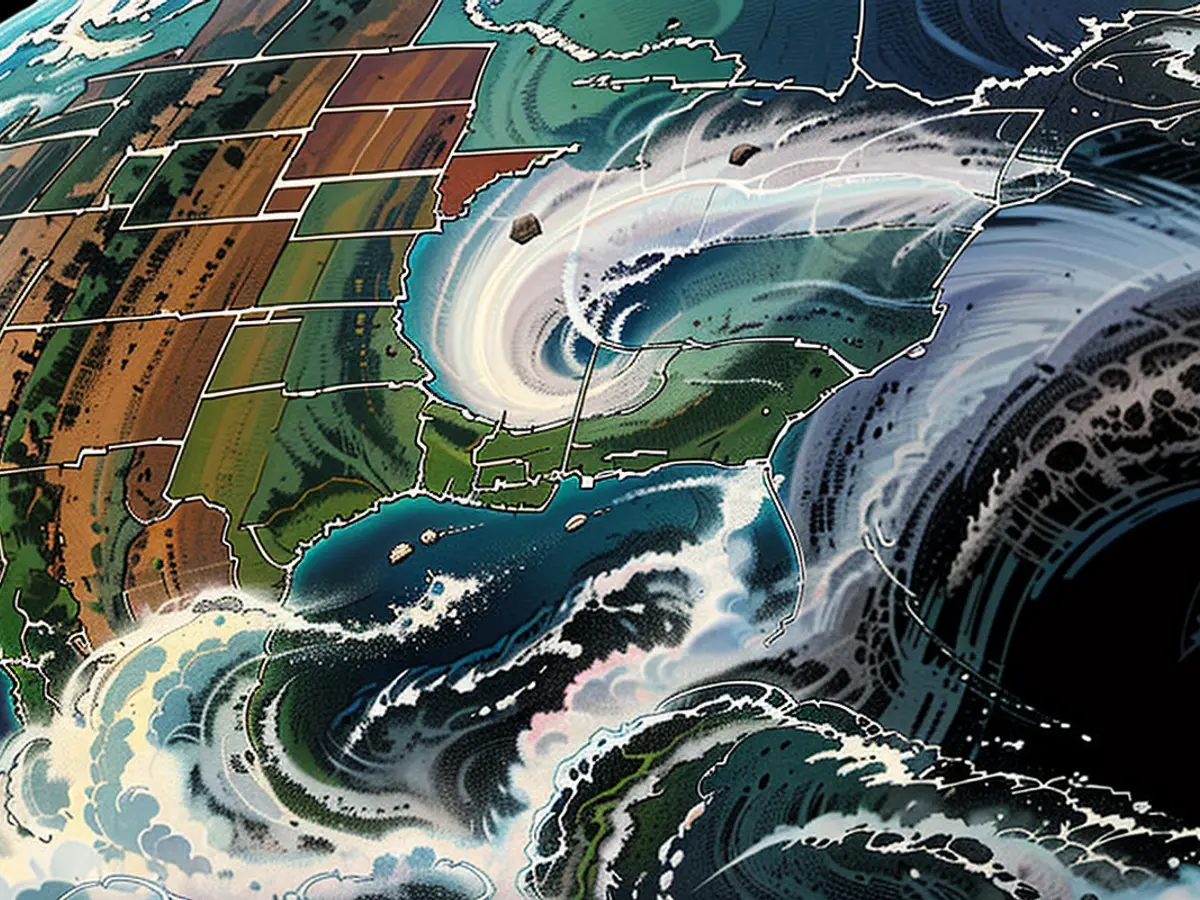In no circumstances can a hurricane be halted.
Amidst theory-spinning, some individuals suspect that the recent destructive hurricanes are orchestrated by the Democrats, aiming to impact the U.S. elections negatively. However, experts argue contradicting these claims, asserting that if they had the power to suppress hurricanes, they would.
Just a few days past, Hurricane "Helene" left a trail of devastation and fatalities in the American southeast. Now, Hurricane "Milton" looms over Florida with full force, fueling conspiracy theories that the U.S. government is manipulating hurricanes to target Republican voters.
Beyond the lack of logic in this notion, weather patterns over the years prove that hurricanes frequently strike particular areas. Moreover, it underestimates mankind's influence on shaping weather phenomena. According to atmospheric and environmental scientist Kristen Corbosiero of the University of Albany, "If meteorologists had the power to stop hurricanes, we would definitely stop hurricanes."
Let's explore the capabilities and limitations of humanity in influencing weather:
Hurricanes as colossal energy sources
A fully ripened hurricane discharges as much heat energy in every 20 minutes as a 10-megaton TNT atomic bomb, stated Chris Landsea, the head of tropical analysis at the U.S. hurricane center. This immense energy surpasses the entire power consumption of humanity simultaneously.
Climate change enhances hurricanes' power by heating the oceans. Scientists found that hurricanes absorb more energy from warmer waters, resulting in more massive rainfall in the warmed atmosphere.
Hurricane researcher Phil Klotzbach of Colorado State University expresses astoundment, "The energy generated by a hurricane is mind-boggling." To consider human capabilities to control such raw power is a testament to our egotism, he remarks. Despite humanity's attempts or even contemplations, none have managed to subdue hurricanes thus far.
Previous attempts at control fail
Jim Fleming from Colby College studied history's attempts to manipulate weather and concluded that humans possess inadequate tools to achieve this ambition. For example, General Electric attempted to weaken hurricanes in 1947, collaborating with the U.S. military by dropping dry ice. Regrettably, this approach fell short.
In the '60s, '70s, and '80s, the U.S. government spearheaded the "Stormfury" project, intending to enhance hurricanes with chemicals that would make them larger but weaker. The experiments yielded no positive results.
Cooling icebergs and water-absorbing substances were also ineffectual, while the notion of binding hurricanes with an atomic bomb has been around for decades. However, even an atomic bomb would lack the required force, according to Corbosiero.
New strategies due to global warming
Contemporary geoengineers no longer focus on individual weather events but rather aim to slow climate change. The idea of releasing aerosol particles into the upper atmosphere's layers is promising. By scattering a small portion of sunlight back into space, the planets' temperature drops slightly. Chris Field from Stanford University speculates that geoengineering may also help mitigate hurricane-induced catastrophes, although this is a distant future.
Even advocates of this theory confess perils and challenges. Some scientists warn that manipulating Earth's atmosphere to counteract climate change could create new predicaments. The American Geophysical Union, the leading association of climate scientists, formulated an ethical framework for climate interventions two years prior but acknowledged that discussing guidelines may increase the likelihood of interventions, which might bring harmful consequences.
According to climate scientist Michael Mann of Pennsylvania State University, bringing up such guidelines only enhances the potential for such interventions to occur, which may bear unfavorable consequences.
Field emphasizes that geoengineering is merely a partial solution and that stopping climate change by reducing greenhouse gas emissions remains the core activity. "Whatever else we do, this must form the basis of our activities," he says.
The Commission on Weather, Climate, and Natural Hazards Analysis, a group of experts tasked with evaluating the potential impacts of weather-altering technologies, released a report stating that current geoengineering techniques are not capable of controlling hurricanes effectively. Moreover, The Commission highlighted the ethical and environmental concerns associated with geoengineering, urging for a cautious approach and continued emphasis on reducing greenhouse gas emissions.







